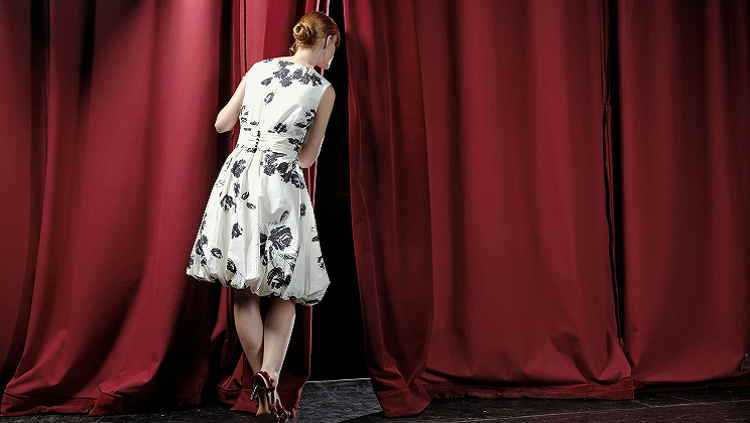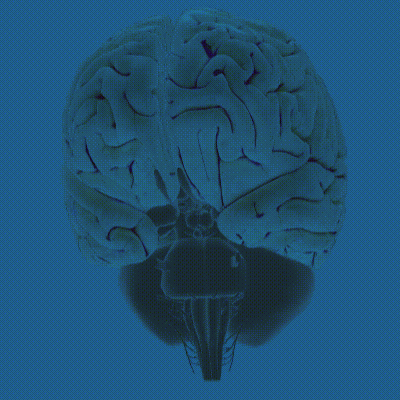What is Performance Anxiety?
- Published25 Oct 2018
- Reviewed25 Oct 2018
- Author Levi Gadye
- Source BrainFacts/SfN

You’ve studied for weeks, and it’s time for your final exam. You got a good night’s sleep, but with the test in front of you, your mind now draws blank after blank. You panic; breathe; then reluctantly fill out whatever you can. Maybe, just maybe, you’ll pull off a passing grade.
What happened? You choked under pressure.
Choking under pressure is not just a slump in performance. It’s performing more poorly than expected, given your skill level, thanks to anxiety produced in the heat of the moment. This is known as performance anxiety.
Nearly any situation can trigger performance anxiety, from competing in a sporting event, to taking a test in school, to parallel parking while your friends are watching. People who aren’t normally anxious can suffer from performance anxiety. For example, even elite athletes or musicians can choke under pressure.
BrainFacts.org spoke with Sian Beilock, president of Barnard College at Columbia University, about performance anxiety, choking under pressure, and what we can do to perform our best.
What causes performance anxiety?
Any situation where you want to perform at your best and are worried about your ability to do so can create performance anxiety. It turns out that a person’s mentality is just as important as their ability when it comes to nailing a guitar solo or scoring a goal. If it isn’t properly managed, performance anxiety can overwhelm even the most practiced of talents.
In fact, simply anticipating a stressful event can cause performance anxiety. My research has shown that people who are anxious about math show signs of performance anxiety simply when they know they are going to have to do math. The more a person is anxious about math, the more they show increased activity in brain regions – such as the insular cortex – responsible for the feeling of being threatened and often the experience of pain itself.
In other words, when people talk about these experiences being painful, there seems to be some truth to that.
People often choke under pressure when they fixate on their routine in ways that are counterproductive. Normally, during a highly practiced performance, brain activity in the prefrontal cortex, which is important for decision making and attention, is subdued. This allows the brain circuits responsible for a routine (located, for example, in the cerebellum and motor cortex, in the case of a sport) to carry out their tasks unimpeded. When performance anxiety becomes overwhelming, the prefrontal cortex kicks into high gear and interferes with activity in these brain circuits, leading a person to fumble and choke under pressure.
How can performance anxiety be managed?
One part of performance anxiety is the body’s physical reaction to stress and fear, or fight-or-flight response. Fortunately, several behavioral tricks for keeping cool under pressure. Researchers have shown that reminding yourself that those sweaty palms and beating heart are a sign you are excited and ready for the challenge – rather than an indictment you are going to fail – can help. And, my lab has shown that training golfers to distract themselves from the details of what they are doing, say by focusing on the dimples in a golf ball, can prevent the choke.
It’s also important to practice under realistic, pressure-filled conditions. If you know you will have an audience when you perform, practice in front of a friend. If you know you’ll be videotaped, practice in front of a video camera. Some professional musicians even practice in virtual performance halls.
At the end of the day, no one is born a choker. People can always learn to perform better in stressful situations. All that it takes is a bit of motivation to alter one’s mindset, and repurpose performance anxiety into an enthusiastic, winning performance.
________________________________________
This Ask an Expert was answered by Sian Beilock as told to Levi Gadye for BrainFacts.org.
References
Beilock, S. L., & Carr, T. H. (2001). On the fragility of skilled performance: What governs choking under pressure? Journal of Experimental Psychology: General, 130(4), 701-725. doi:10.1037/0096-3445.130.4.701 https://www.ncbi.nlm.nih.gov/pubmed/11757876
BrainFacts.org welcomes all your brain-related questions.
Every month, we choose one reader question and get an answer from a top neuroscientist. Always been curious about something?
Please submit your question by filling out this form.








